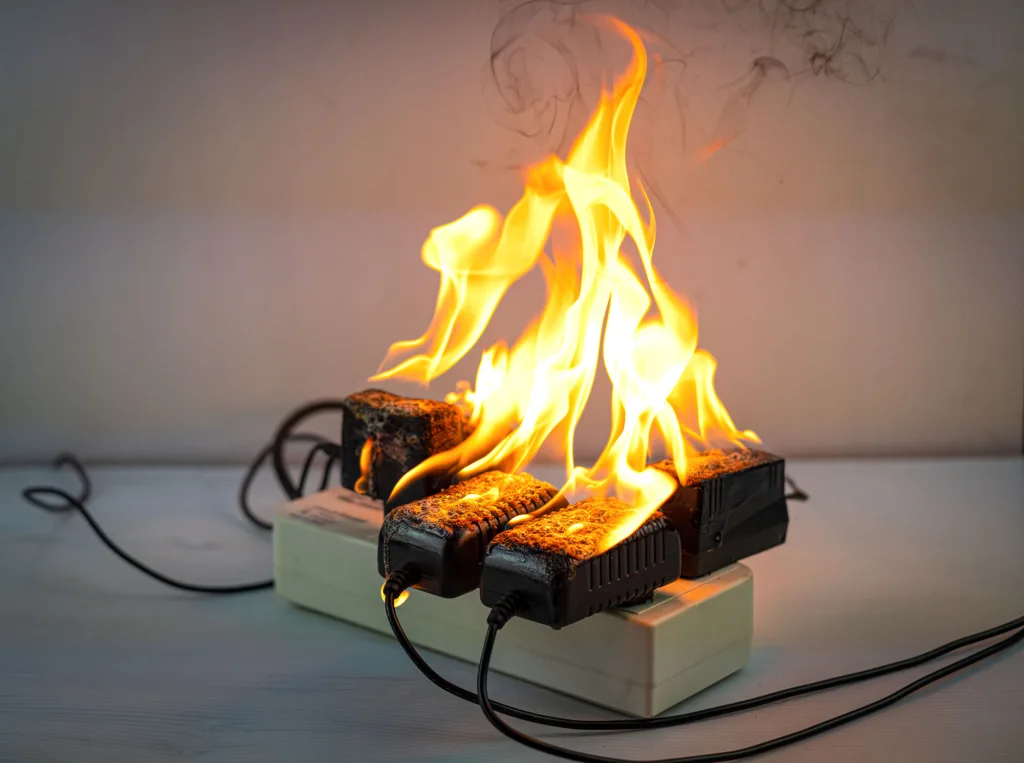Electrical overloads are not something most of us think about until there’s an issue. But whether it’s flickering lights or an overloaded fuse board, these signs can indicate a growing demand on your home’s electrical system—especially common in Cornwall, where older homes and seaside locations may add unique challenges. Many homeowners are unaware that unchecked overloads can put appliances at risk and, in severe cases, pose fire hazards.
This guide will help you understand what electrical overloads are, recognise the signs, and find practical solutions to prevent them in your home. We’ll also explore how to determine if it’s time for a system upgrade and when to call in professional support. For Cornwall residents, preventing electrical overloads isn’t just about safety—it’s also about enjoying a stable, efficient home that meets modern energy needs.
What is an Electrical Overload?
An electrical overload occurs when a circuit is asked to carry more electricity than it was designed to handle. In homes, this commonly happens when multiple high-demand devices are connected to a single outlet or circuit, such as using an electric heater, washing machine, and kettle on the same line.
While modern consumer units, or fuse boards, are designed to handle standard loads safely, an overload can cause breakers to trip and can even damage appliances. Ensuring that each circuit carries a reasonable load will prevent the risk of overloading.
Causes of Electrical Overloads in Homes
Increasing Power Demands
Today’s homes demand more power than ever before. The rise in high-energy devices, from home entertainment systems to small kitchen appliances, puts constant pressure on your home’s electrical system. Using multiple devices simultaneously can quickly overwhelm a circuit, especially if they’re all connected to a single outlet.
Outdated Electrical Systems
Many homes in Cornwall, particularly older or period properties, have electrical systems that were not designed for today’s energy use. Fuse boards or consumer units in these homes may not meet current safety standards, making overloads more likely. If you suspect your consumer unit might need updating, consider exploring our DIY Tips for Consumer Unit Replacement for more information.
Faulty or Inadequate Wiring
Wiring degrades over time, especially in homes exposed to coastal air and moisture. Inadequate or outdated wiring can’t support heavy electrical loads and may lead to overheating or overload. Poor-quality or damaged wiring should be promptly addressed, as it poses significant safety risks.
Identifying Signs of Electrical Overload
Recognising the signs of an electrical overload early on can help prevent potential hazards. Some tell-tale indicators include:
- Flickering or Dimming Lights: Lights that flicker or dim when appliances are turned on often indicate an overloaded circuit.
- Tripped Circuit Breakers: Circuit breakers that trip frequently are a sign that a circuit is carrying too much load.
- Buzzing or Burning Smells: A faint burning smell or buzzing sound near outlets or the consumer unit should be taken seriously, as this often points to overheating or a loose connection.
- Warm or Discoloured Outlets: Outlets that feel warm to the touch or have discolouration marks can indicate excessive heat due to overloading.
If you notice these signs, take immediate action. Ignoring them can lead to more significant issues over time, including the potential for electrical fires. For further insight, you can refer to the safety recommendations on electrical load management outlined by Electrical Safety First, a leading UK authority on electrical safety.
Practical Tips to Prevent Electrical Overloads
Preventing an overload in your home doesn’t have to be difficult. Here are some practical steps you can take to balance your electrical load and reduce strain on your circuits.
Spread Out Appliances Across Circuits
Try to avoid plugging multiple high-power devices into a single outlet or on the same circuit. Spread out appliances like microwaves, toasters, and electric heaters across different circuits if possible, which will help distribute the load more evenly throughout your home.
Unplug Unused Devices
Many devices continue to draw power when plugged in, even if they’re not in use. By unplugging chargers, small appliances, and electronics when they’re not needed, you can reduce unnecessary strain on your electrical system.
Use Dedicated Circuits for Heavy-Duty Appliances
Larger appliances, such as washing machines, dryers, and electric ovens, should ideally have their own dedicated circuits. This helps to prevent overload by ensuring that only one high-demand device is running on a given circuit at a time. For homeowners needing guidance on installing dedicated circuits, the consumer units and fuse boards services offered on our Consumer Units/Fuse Boards Service Page can help ensure these changes are made safely and efficiently.
Upgrading Electrical Systems to Meet Demand

As demands on household electricity grow, outdated systems can struggle to keep up. Upgrading specific components can make a significant difference in preventing overloads.
Modernise Your Consumer Unit (Fuse Board)
Replacing an older fuse board with a modern consumer unit provides better load management, enhanced safety features, and compliance with the latest safety standards. Modern consumer units are also designed to handle the demands of today’s homes, reducing the chances of frequent tripping and overloads. For those interested in upgrading, check out our guide on DIY Consumer Unit Replacement Tips.
Add More Circuits as Needed
Adding circuits or ring mains can help distribute power more evenly across your home. This solution works particularly well in homes with multiple high-demand devices or for rooms that require extra outlets.
Consult a Professional Electrician
If you’re uncertain about your home’s electrical setup or need help with upgrades, it’s essential to consult a qualified electrician. Professionals can assess your system, provide tailored advice, and ensure that any work done complies with regulations. Reach out to our team for expert guidance tailored to Cornwall properties.
Cornwall-Specific Considerations for Electrical Overloads
For Cornwall residents, environmental factors like coastal air and older property constructions can impact electrical system longevity. Salt in the air, for instance, can corrode wiring over time, increasing the risk of faults. If you own a period property or live near the coast, regular electrical inspections are advisable to ensure that your system remains safe and efficient.
Frequently Asked Questions
Q1. How often should I check my circuit breakers?
While there’s no strict rule, it’s a good idea to check circuit breakers if you notice frequent tripping or other signs of an overloaded circuit. Routine checks every few years by a qualified electrician can also help maintain safety.
Q2. What should I do if I suspect an overload?
If you suspect an overload, unplug unnecessary devices immediately and avoid using high-power devices on the same circuit. Consult an electrician if the problem persists or if you notice other signs of electrical faults.
Q3. How can I know if my fuse board needs an upgrade?
If your fuse board is more than 20 years old or lacks modern safety features, an upgrade may be necessary. Signs like frequent breaker trips or warm spots on the board are good indicators to get a professional assessment.
Conclusion
Preventing electrical overloads is essential for keeping your home safe and efficient. By following these guidelines, you can reduce the risk of overloads, make better use of your circuits, and improve your system’s overall reliability. If you think it’s time to upgrade or would like personalised advice on preventing overloads in your Cornwall home, visit our homepage to learn more about our services and how we can help.
Keeping your home’s electrics safe doesn’t just ensure smoother operation; it also provides peace of mind, knowing your household is equipped to meet modern demands safely.










